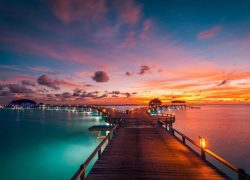Fuvahmulah Island in the southern Maldives is making waves in both marine science and global media following its prominent feature in the premiere episode of All the Sharks, a new Netflix competition series that debuted last Friday. Recognized for hosting the highest number of individually identified tiger sharks in the world, Fuvahmulah now stands as a critical destination for marine research and adventure tourism.

This international spotlight reinforces the Maldives’ position as a premier eco-tourism destination, particularly for divers and ocean enthusiasts. The island’s feature in the global documentary-style series is supported by rigorous scientific data published earlier this year in Nature.com, confirming the island as home to 239 unique tiger sharks recorded over six years the largest known aggregation worldwide.
Led by Lennart Vossgaetter from the Leibniz Centre for Tropical Marine Research in Germany, the peer-reviewed study utilized non-invasive photo identification methods to catalog these apex predators. Researchers concluded that adult female tiger sharks in particular exhibit high site fidelity, remaining in Fuvahmulah’s temperate, food-rich waters during gestation. This finding emphasizes the island’s critical role as a reproductive haven for the species.
Fuvahmulah’s underwater environment, shaped by unique oceanic currents and its isolated geography without a surrounding atoll, creates ideal conditions for shark habitation. Unlike many coral reef-based islands in the Maldives, Fuvahmulah’s deep coastal drop-offs offer consistent sightings of large pelagic species, especially tiger sharks. These natural features make the island an exceptional location for both scientific study and high-end marine tourism.
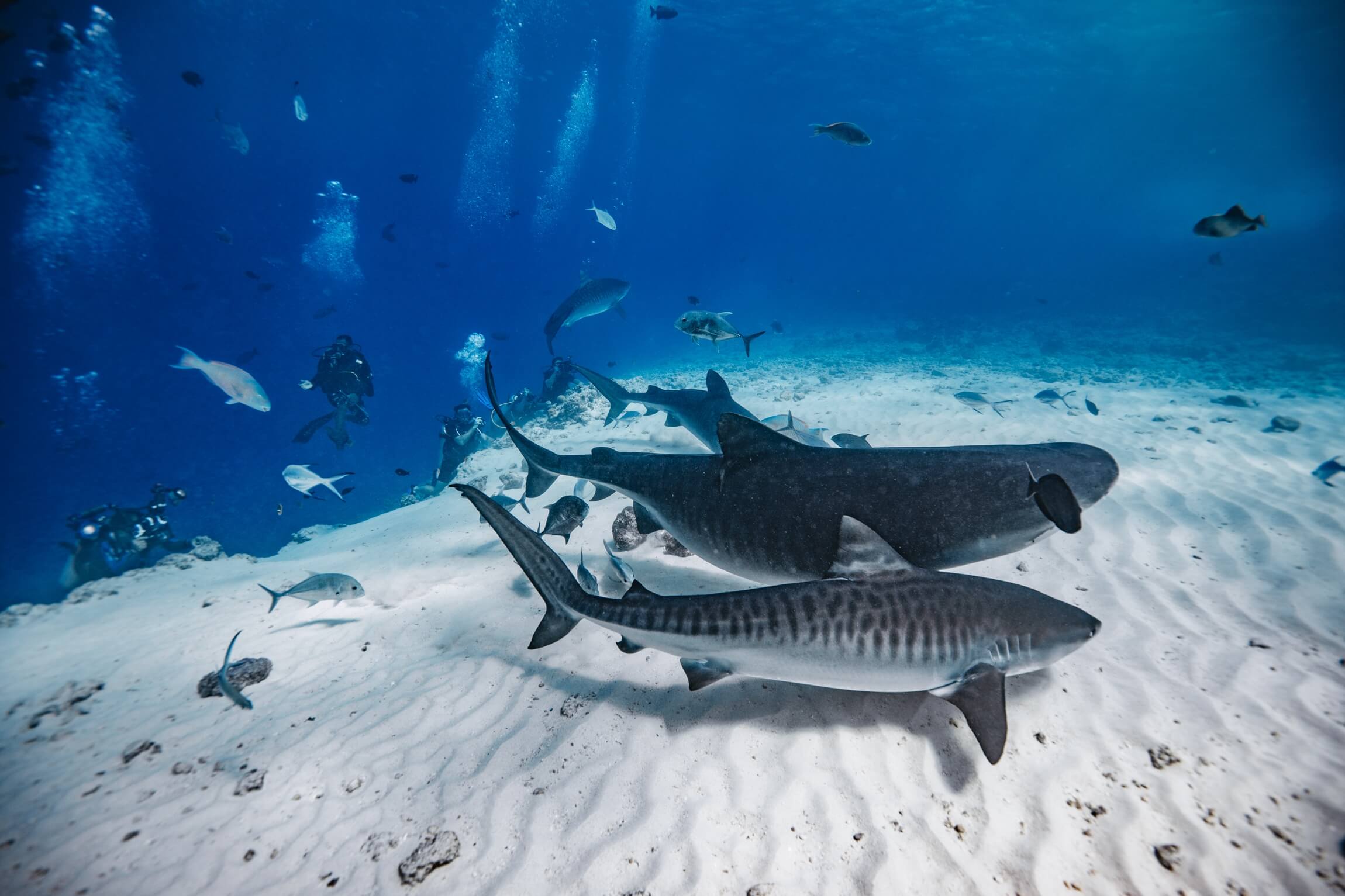
All the Sharks, hosted by marine biologist Tom “The Blowfish” Hird, takes viewers on an international expedition with four expert teams competing to photograph the greatest variety of shark species across six marine-rich destinations. Fuvahmulah leads the series, followed by Japan, South Africa, the Galápagos, Australia, and the Bahamas. The series combines the entertainment value of competitive storytelling with marine science and conservation awareness, awarding the winning team US$50,000 for a chosen marine conservation charity.
The Maldives, already known for its pristine beaches, luxurious resorts, and rich biodiversity, gains further prestige with Fuvahmulah’s dual role as a shark diving hotspot and a globally important conservation site. The island is part of the Maldives’ national shark sanctuary, a designation that bans all shark fishing and underscores the country’s commitment to preserving marine biodiversity.
However, researchers have raised concerns about the fast-growing nature of unregulated shark tourism on the island. Tiger shark encounters at the popular dive site known as “Tiger Harbour” attract thousands of visitors annually, yet there are currently no national guidelines in place for shark provisioning, diver safety, or environmental impact. The study highlights the need for formal regulation to safeguard both the sharks and the long-term sustainability of the tourism sector.
Drawing parallels to best practices in destinations like Fiji, where community-led marine protected areas have successfully balanced tourism and conservation, the study calls for the Maldives to adopt inclusive management strategies. This includes developing national standards for shark diving, enhancing safety protocols, and promoting ecological education for both operators and tourists.
The integration of Fuvahmulah into a mainstream global series offers more than just scenic imagery. Conservation graphics, educational commentary, and expert insights in the Netflix show help reposition sharks from fearsome creatures to vital guardians of ocean ecosystems. As audiences around the world tune in, the Maldives gains not only tourism exposure but also recognition as a leader in oceanic preservation.
Fuvahmulah’s emergence as a premier shark diving destination presents significant opportunities for the local tourism industry. Boutique dive resorts, guesthouses, and eco-lodges on the island are already catering to a growing market of environmentally conscious travellers seeking immersive experiences with nature. The island’s natural allure — coupled with scientific credibility and international media coverage, positions it to benefit from increased demand in sustainable tourism.
This newfound recognition reinforces the importance of responsible tourism management. As international interest surges, preserving the delicate balance between economic growth and environmental protection remains essential. With its rare marine life, unique oceanographic setting, and global media presence, Fuvahmulah is now firmly on the map as both a natural wonder and a case study in marine sustainability.
For tourists seeking meaningful adventure, world-class diving, and the chance to witness tiger sharks in their natural habitat, Fuvahmulah offers an unforgettable experience one now broadcast to millions of viewers across the globe. The Maldives’ commitment to marine protection, when paired with strategic tourism development, ensures that Fuvahmulah’s waters remain a sanctuary for both sharks and the travelers who come to see them.

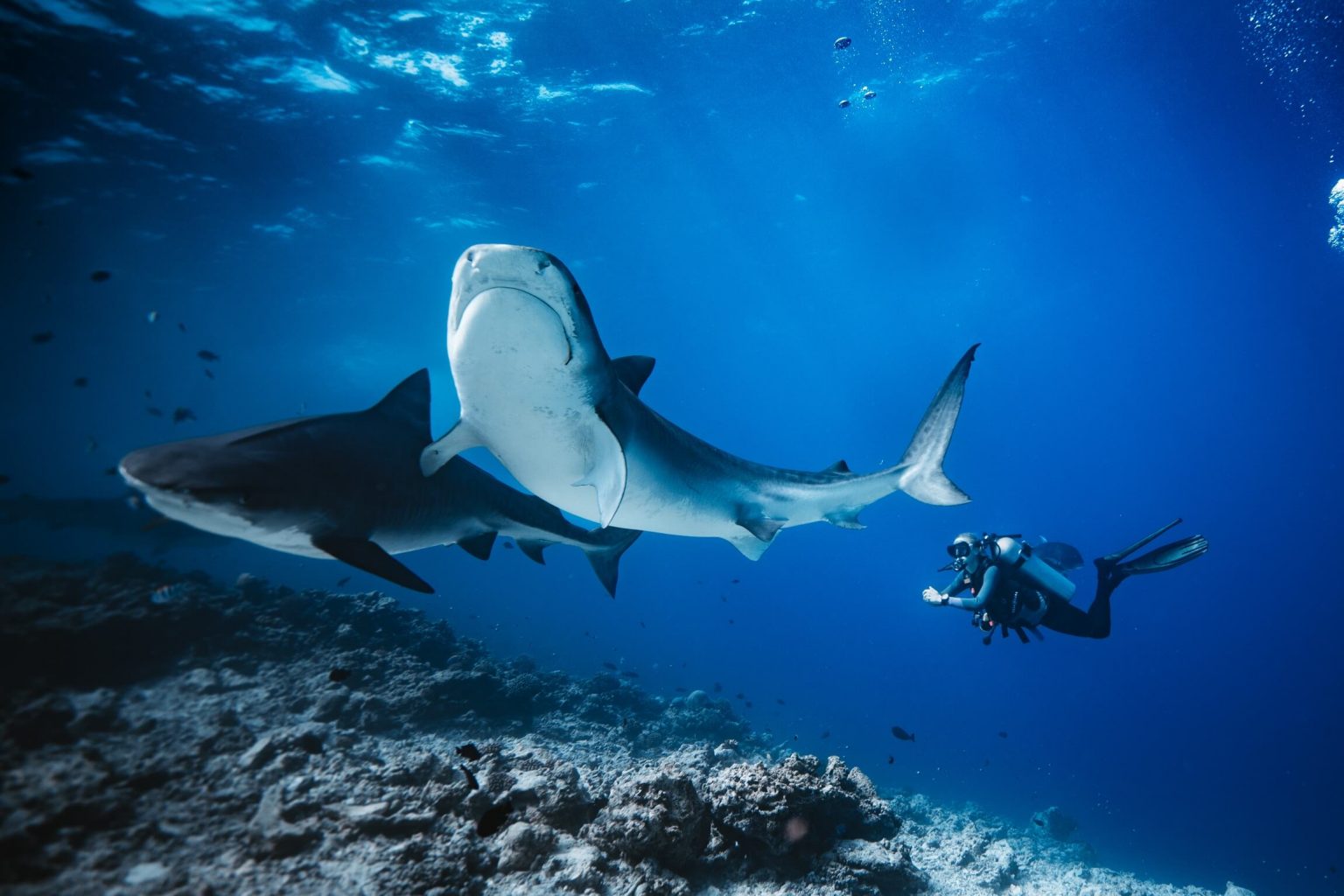

 advertisment
advertisment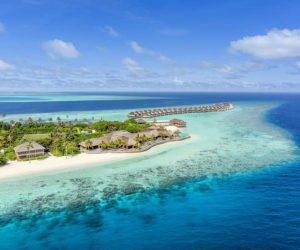

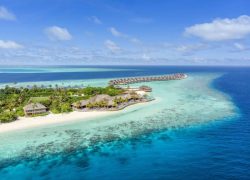


 advertisment
advertisment
